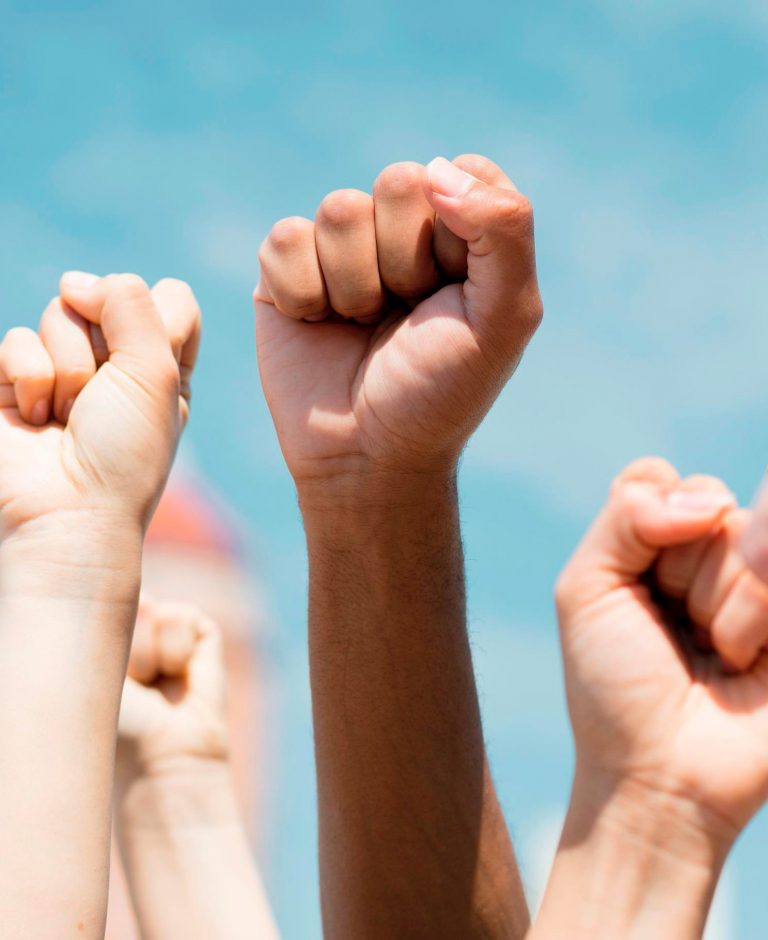Racism isn’t limited to white supremacy in the United States.
Many countries and cultures have their own forms of colorism and anti-Blackness. And while as Non-Black People of Color we have our own pain and we’re discriminated against in different ways, it’s still vital for us to stand together to fight racism.
Here Are 10 Ways We Can Be Better Allies
1. LISTEN when Black people talk about their experiences. While we will never be able to truly know the hurt and pain endured by Black people, we can hold a safe space for them to express themselves without fear of interruption or defensiveness.
2. HONOR and VALIDATE the feelings of Black people. Black people are often tone-policed as angry or irrational when expressing their frustrations about the racism they endure. The least we can do is to acknowledge that these feelings are valid after having to live through centuries of violence and racism.
3. Try to UNDERSTAND their viewpoint without inserting your own opinions. While non-Black people of color are discriminated against in different ways, we still don’t know exactly what it feels like to have 400 years of systemic oppression be the foundation for our life. It’s absolutely essential to try to understand their lived experiences of surviving in an anti-Black world without inserting opinions about it.
4. EDUCATE yourself about racism before asking black people to explain it to you. It is not the job of the Black people in your life to educate you about racism. There are countless books, courses, lectures, studies, Ted Talks about it. Seek out these resources before asking your Black friends to explain it to you.
5. LEARN and embody the difference between “I’m not racist” and “I am anti-racist.” As Angela Davis said “In a racist society it’s not enough to be non-racist. We must be antiracist.” Antiracism starts with acknowledging that the status-quo is inherently racist because it’s built on the sweat and blood of enslaved Black bodies. Antiracism requires that we support policies and beliefs which promote racial equity.

6. CHALLENGE the other people in your life to think critically about racism. Don’t ignore it when someone makes a racist comment or perpetuates a racist stereotype. Gently challenge them to see the situation from the perspective of the Black person.
7. DIRECT people towards Black leaders (my favourite educator is Rachel Cargle). This is not your opportunity to be a “savior.” This is your opportunity to amplify the work of the Black men and women who have been doing this world for decades.
8. REACH OUT to the Black members of your community and ask them how they’re doing. This is such an emotionally volatile time. Your Black friends and co-workers are understandably feeling everything from anger to confusion to despair right now. Do your best to listen and support them as much as you can.
9. Openly call out and REJECT any form of privilege which attempts to bypass the impacts of racism. For example, if someone says #alllivesmatter as a response to #blacklivesmatter, explain to them the fact that Black people are disproportionately killed by police means that currently all lives do not matter. In order to get to a world in which all lives truly matter, we need to acknowledge that systemic racism exists.
10. If you make a mistake, OWN it, and listen to the black community about how you can fix it. Mistakes are an inevitable part of learning something new. Owning up to your mistake, instead of denying or dismissing it, will show that you’re committed to your antiracism work.
By using our voices to fight against racism, we can ensure that we’re not complicit in perpetuating racist beliefs and systems. And we can get one step closer to a more equitable world.
(This post was inspired by an article written by Derrick Clifton. Click here to read the original.)
